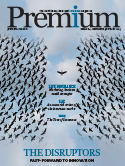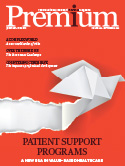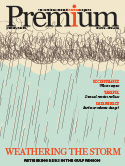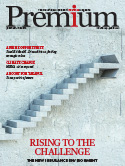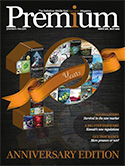Lebanon tested again

The country of Lebanon was rocked by a massive explosion at the Beirut Ports recently on August 4, 2020.
While the latest news reports attribute the explosion originating from a warehouse storing 2750 tonnes of ammonium nitrate, the questions remain as to how and why the incident took place and how will the economy that is stretched due to pandemic costs and international debt, be impacted.
High inflation and poor GDP growth have been throwing the economy into doom and gloom. The explosion has caused a number of casualties and damage to property. Officials estimate the damages to amount to about USD15 billion, according to news reports. Around 300,000 people have been rendered homeless, along with 5000 injured and 158 deaths.
AM Best released commentary on the incident stating that insurance penetration generally was low and property insurance represented only a small fraction of the Lebanese insurance industry, which was dominated by three segments: life, medical and motor. Based on the latest available data, together these segments accounted for almost 85 percent of Lebanon’s gross written premium (GWP) in 2018.
Furthermore, AM Best has pointed out that the Lebanese insurance market has an asset allocation that favours high levels of case and fixed income instruments over higher risk assets deemed more volatile such as real estate and equities.
While Premium has reached out to the industry for comment, responses have been slow owing to the unfolding nature of the crisis. Hannover Re executive board member Sven Althoff has said: “We expect this tragedy to be a major claim for us. We define major claims as catastrophic events that are expected to result in gross loss payments of more than EUR10 million.”
Meanwhile Chedid Re released a statement that read: “Thank you for reaching out to Chedid Re; under those circumstances the teams operating in Beirut and the Group can only stand united with the people of Lebanon and will spare no efforts to help in bringing back the insurance business cycle to its normal. We pray for the Soul of the martyrs and to the recovery of the injured persons and we believe that Lebanon will recover again.”
BSA Ahmed Bin Hezeem and Associates LLP also released commentary on the incident. Michale Kortbawi, partner at the firm, discussed various insurance considerations. “A significant concern when seeking coverage is whether the insurer will look to the various policy coverage exclusions which would allow them to avoid paying the claim. Those common exclusions which come immediately to mind given the circumstances of the explosion as well as recent Lebanese history, are the exclusions for damage caused by war, terrorism, or insurrection,” he said.
Kortbawi has also cautioned policy holders of the relatively short deadline requiring submission of at least notice of a claim to the insurer. “Firstly, anyone who sustained physical damage to their homes, businesses, or other property may have a valid claim under the terms of their first-party premises coverage, that being a homeowners policy, or in the case of businesses, their commercial Property All Risk (PAR) insurance policy, both of which cover damage resulting from various occurrences. Similarly, motor vehicles will have comprehensive coverage, if coverage was purchased, which covers the vehicle for such loss or damage.
“Most such first-party premises insurance policies specifically cover damage resulting from an explosion; however, it is important to review the terms of the policies to make sure this occurrence is covered. Such insurance policies may take the form of ‘all-peril’ policies, meaning that most occurrences are generally covered, unless specifically excluded, or ‘named-peril’ policies which cover only specifically designated risks. Having said this, most ‘named-peril’ policies do list ‘explosion’ as a covered risk,” Kortbawi added.
Much of the Beirut port has been devastated with partial collapse of grain silos, which may trigger food shortage, a total collapse of warehouses and impact to ships in the surrounding area.
Guy Carpenter has released a bulletin on the incident explaining that investigators will require adequate time to assess the explosive mechanism. “It is likely to be complex, imperfect and therefore not directly comparable to an idealised high explosive event that is typically assumed for insurance blast modelling scenarios. It may be that not all the material combusted or at sufficient speed to detonate, or that there was a series of near instantaneous explosive events,” the bulletin stated. Guy Carpenter expects to obtain further building level damage assessment data early next week, which will assist clients with identification and estimation of their losses.
However, all insurance companies in Lebanon are waiting for initial investigations into causes for the explosion to be completed, before deciding to cover the damages sustained by various parties, according to media reports.
“The insurance companies are not obliged to cover the material losses if the policies make no mention of dangerous materials or bombs. There are three exclusions in the insurance policies: radioactive material, biological material and weapons,” Elie Torbey, chairman of the Association of Insurance Companies, told The Daily Star. Further updates are awaited.









